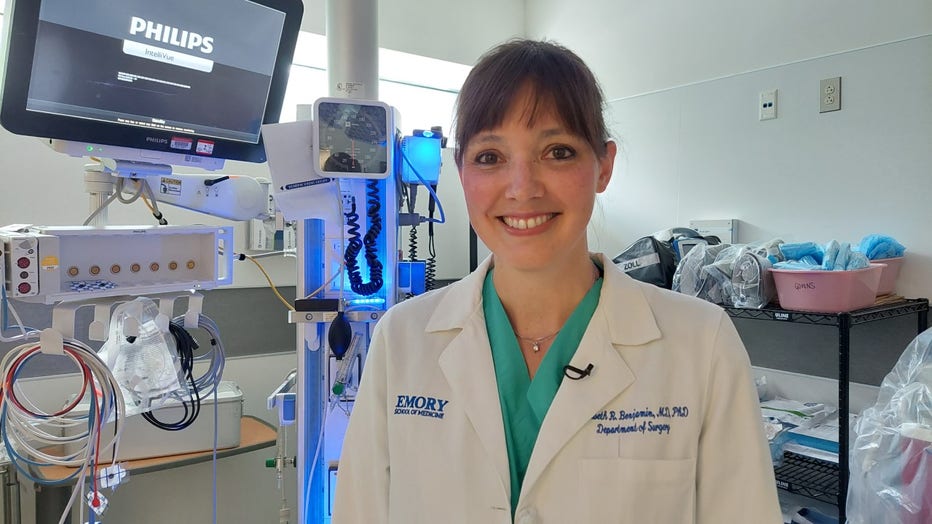This happens every single night: Atlanta trauma surgeon talks about treating shooting survivors
ATLANTA -
You see the shootings on the news.
Dr. Elizabeth Benjamin sees what happens next, what bullet can do to the body.
"It's terrible, it's really terrible," Benjamin says. "Patients come in, they're scared, obviously. They've lost a lot of blood."
Dr. Benjamin is the trauma medical director at Grady Memorial Hospital, one the busiest trauma centers in the country.
"We see a lot of this violence come through our doors, we treat a lot of these patients," she says. "When a patient comes in, they're often low blood pressure, their mental status is not always there because of loss of blood."
Grady EMS lead paramedic Fred Chamberlin is usually first on the scene of shootings.
"It could be one patient, it could be five patients," Chamberlin says. "You don't know until you get there."
He has been responding to shootings for 25 years.
"Every call is different, every single one of them is different," he says. "It could be easy-peasy: 'Oh, shot in the leg? Alright, we're going to Grady!' to, 'You've got four holes in your chest, I hope we make it to Grady."
"For me, it's autopilot," Chamberlin explains. "I've done it so much. It's like, "All right, we've gotta go. Here's what we're gonna do: get him in the truck, let's go."
Because with some firearm injuries every minute matters.
"You just watch somebody slowly head towards the end of their life, as their color becomes pale, their breathing becomes labored, and it's a race against time to get them to a trauma center, so the surgeons can actually open them up and stop the bleeding," Chamberlin says.
Once they get to Grady, Dr. Benjamin says things move quickly.
"We take them rapidly up to the operating room, and there is a team there on standby, ready to go," she says.
But, they often do not know what they are up against until they open the patient up in the OR.

Dr. Elizabeth Benjamin, Grady Memorial Hospital's trauma medical director, says her hospital treats several shooting victims a day. (FOX 5 Atlanta)
"You see a lot of people that come in with minor wounds, but also people that come in with really major wounds," Benjamin says. "You see just a small wound on the surface but inside the bullet has done really major damage to the body that requires a lot of medicine and surgery to try to heal the body."
Benjamin says we hear a lot about mass shootings, which can take a terrible toll of communities.
Yet, she says, firearm injuries are a daily problem at Grady.
"This happens every single night, every single night," she says. "We have people coming in every single night who have been shot. I can't remember a time I was on call when I didn't see a gunshot victim."
On a busy shift, they'll have three or four patients in surgery.
In 2021, just over 1,100 shooting survivors where hospitalized at Grady.
"The person that is shot, they're in the hospital, their family is affected, their job, their livelihood, their ability earn a living, complete school, take care of their family, all of those things are altered, often forever, because of it," Benjamin says.
And, sometimes, even the best medicine is not enough.
"And that's part of my job, I understand rationally that I can't save everybody that comes in, but you can't help but be affected by that," Benjamin says.
"Gun violence is something that affects people every single day. And, it needs to stop."

